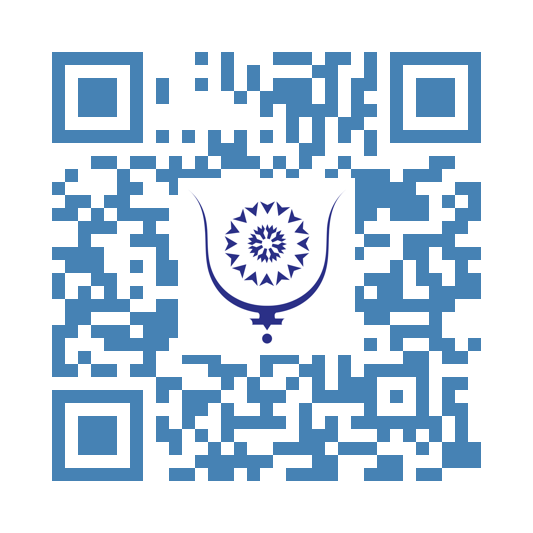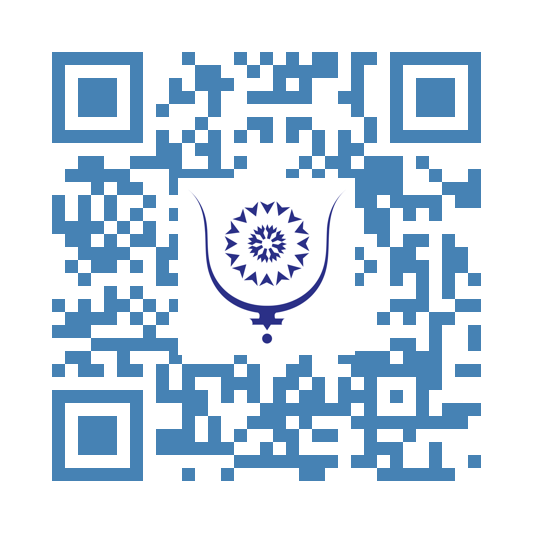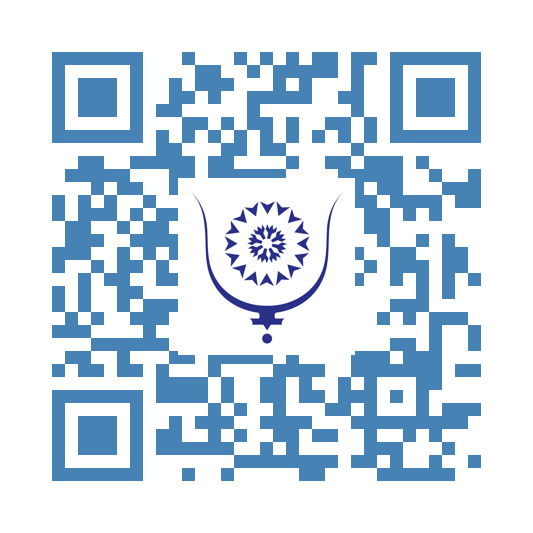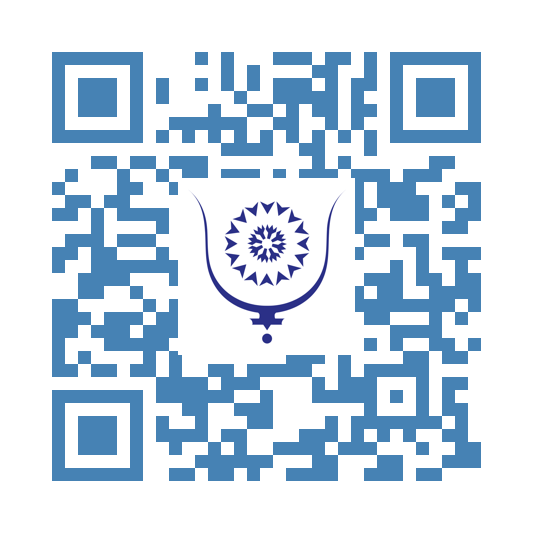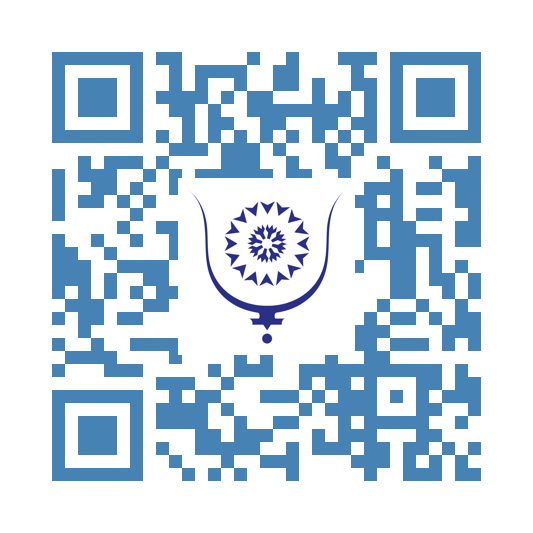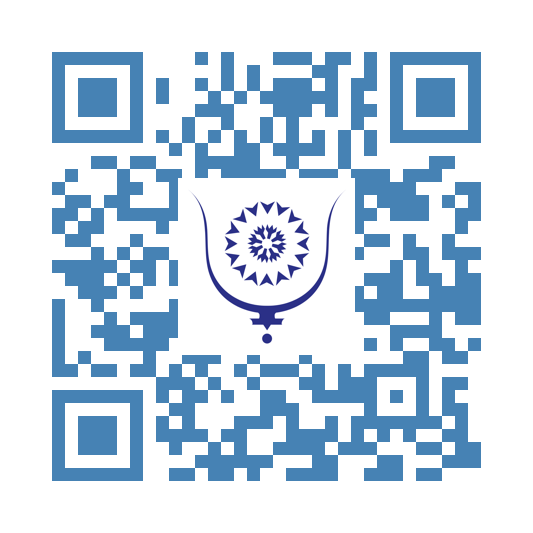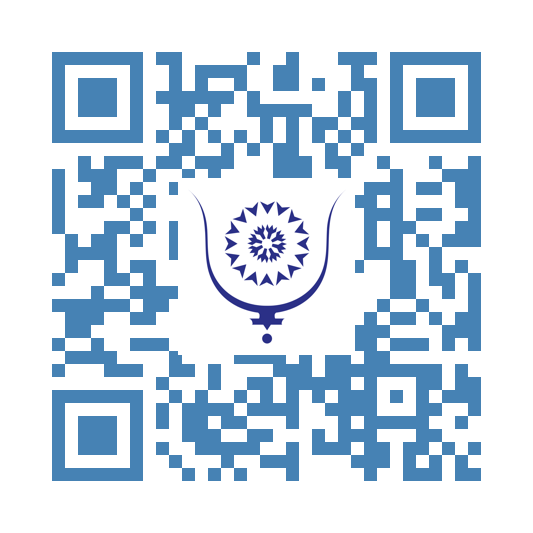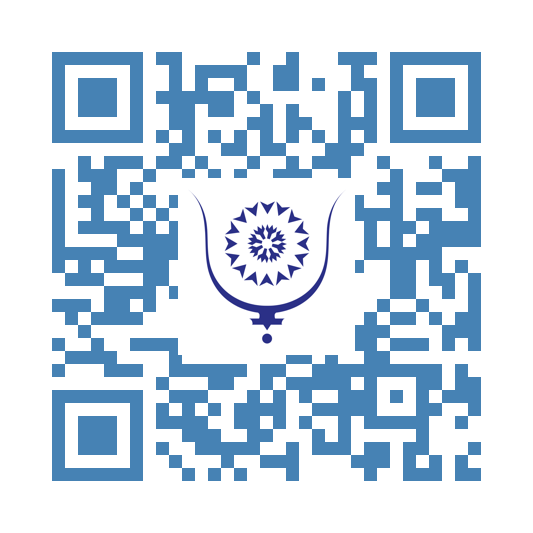Council of Europe Conference on Human Rights in Sport Held in Rabat, Morocco.
234
The Council of Europe, in collaboration with the Ministry of Preschool Education and Sports, and with the support of the Swiss Embassy to the Kingdom, organized in Rabat on June 23 and 24 a conference dedicated to Human Rights in Sport. All relevant departments and administrations, the national sports movement, as well as researchers specializing in the field were invited.
The choice of date was no coincidence: we are just a few months away from the 2025 Africa Cup of Nations, and a few years from the FIFA World Cup co-hosted by Morocco, Spain, and Portugal. These major sporting events require the Kingdom to strengthen and update its legal and institutional framework regarding human rights in sport.
For the Council of Europe, sport is not only an essential physical and social activity but also a fundamental vector of human rights, embodying values such as respect, non-discrimination, solidarity, and justice. To protect and promote these rights, it relies on several key conventions: the Macolin Convention, the Anti-Doping Convention, and the Saint-Denis Convention. These legal instruments form the cornerstone of its commitment to ethical, safe, and inclusive sport.
Morocco has signed the Macolin Convention, which is awaiting ratification. It has also acceded to the provisions of the Anti-Doping Convention but remains an observer regarding the Saint-Denis Convention.
The conference therefore addressed these different legal frameworks, further explained them, and reviewed the Kingdom’s progress in these areas.
Following the official opening and presentations by the departments of the Ministry of National Education, Preschool and Sports, the Ministry of Justice, the Public Prosecutor’s Office, the representative of the Royal Moroccan Football Federation, Swiss ambassador and the Head of the Council of Europe Office in Rabat, several experts took the floor to elaborate on the theme:
Prof. Younes Lazrak Hassouni presented the Moroccan national legal framework concerning human rights in sport.
Dr. Fatima Abouali, President of the Moroccan Anti-Doping Agency (AMAD), spoke about AMAD’s commitment to respecting human rights. The Anti-Doping Convention (1989, amended in 2002) seeks to preserve health and sporting fairness by eradicating doping, which is considered a violation of sports ethics and a threat to athletes’ health. It supports the fundamental right to healthy and fair sport, guaranteeing the dignity of participants.
Mr. Younes El Mechrafi, General Director of Moroccan Games and Sports, addressed the fight against illegal betting in light of the Macolin Convention, highlighting recent developments, particularly in combating illegal betting. The Macolin Convention (2014) aims to strengthen national coordination and international cooperation to prevent and combat the manipulation of sports competitions, whether related to criminal activities or sports betting. It protects the integrity of sport, ensuring a fair environment for athletes and spectators—an essential aspect of human rights in sport.
The Moroccan presentations were followed by those of Council of Europe experts:
Ms. Elena Caser, from the Sports Division, outlined the Council’s priority areas for preserving sports integrity.
Mr. Nicolas Sayde detailed the implementation of the Macolin Convention to combat competition manipulation, using concrete examples.
Ms. Marie Françoise Glatz, Secretary of the Saint-Denis Convention, presented the principles and standards of this convention, emphasizing its integrated and multi-institutional approach to the secure management of sporting events.
Mr. Paulo Gomes, Head of the Convention Unit, stressed the added value of this convention for Morocco, especially regarding a strengthened legal framework and the security of upcoming major sporting events.
The objective was clear: to convince Morocco to fully adhere to the Saint-Denis Convention. To date, this convention is the only binding international instrument that establishes an integrated approach to ensure the safety, security, and quality of services at sporting events. It promotes close cooperation between public authorities, private actors, and supporters to create welcoming, safe sporting events that respect human rights, particularly in combating violence, racism, and discrimination.
This last convention sparked extensive debate, especially among representatives of the Ministry of Justice, the Public Prosecutor’s Office, and the General Directorate of National Security, as Morocco is currently preparing its legal arsenal for hosting the Africa Cup of Nations and the World Cup, in accordance with the requirements of various specifications.
Beyond international conventions, Morocco is one of the few countries in the world to have enshrined sport and physical activity in its Constitution. It establishes these as a right for citizens and an obligation for the State. Physical activity constitutes the primary pillar of any comprehensive health system, both physical and mental. Sport plays a crucial role through its recreational, social, political, and geopolitical dimensions. It is also an important economic sector, contributing significantly to GDP, directly or indirectly.
The Kingdom has a solid normative framework: Law No. 30-09 on physical education and sports, Law No. 84-12 on the organization of sports activities, Law No. 09-09 against violence in stadiums, and Law No. 97-12 on anti-doping, which regulates controls and sanctions. These laws are complemented by Decree No. 2-10-628 of 2011 relating to Law 30-09.
This fairly comprehensive system aims to make sport a space of respect, fairness, and solidarity, in line with the universal values of human rights.
The proper organization of sporting events, the fight against doping, and the fight against violence form a fundamental triptych guaranteeing integrity, health, safety, and respect for fundamental rights in sport.
This integrated vision places sport at the heart of public policies promoting human rights, making it a powerful lever for a fairer, more inclusive, and more united society.
Holding this conference in Rabat confirms the Kingdom’s determination to comply with the highest international standards in this field and demonstrates its openness to cooperation with its partners, notably the European Union and its dedicated bodies.
Share:
Council of Europe Conference on Human Rights in Sport Held in Rabat, Morocco.
copy:
https://bluwr.com/p/235584604
Mauritania’s Ambiguous Stance on the Western Sahara Conflict
279
The Mauritanian Minister of Culture, Arts, Communication, and Relations with Parliament, Government Spokesperson El Houssein Ould Meddou, recently spoke on France 24 regarding Mauritania’s position on the so-called Western Sahara conflict. Clearly uncomfortable, to the point of appearing surprised by the journalist’s question, he seemed to stammer while affirming that Mauritania adopts a policy of neutrality, introducing a new concept: that of “positive and active neutrality” in this matter.
Very clumsily, he reduced the issue to a matter between Morocco and what he called “the Sahara,” without specifying who exactly he meant. He got further bogged down when he claimed that his country does not limit itself to a passive stance but is sincerely committed to contributing to a fair political solution, serving regional stability and the interests of all parties involved. Again, no clarification was given on who these parties are, and whether his own country is included or not. This borders on contradiction with his earlier statements.
According to the Minister, this neutrality is expressed notably by Mauritania’s willingness to play a central role in facilitating dialogue between the conflict’s actors, fostering a climate of trust and overcoming political deadlock. However, he seemed not to have carefully read the Security Council resolutions since 2007.
The Minister showed more irritation when the journalist asked about the closure of Lebriga, the border post between Mauritania and Algeria. He appeared unaware of this closure, which is surprising given that the decision sparked major controversy and strong reactions from separatists against his own country and government. After some hesitation, he awkwardly stated that the recent Mauritanian decision to close the Lebriga crossing on the Algerian border was a measure taken for internal security reasons, aimed at controlling crossings and protecting national sovereignty. His attempt to recover only entrenched him further. For him, this decision has no political significance and targets no particular party but responds to a state approach to securing borders. Quite astonishing.
The Mauritanian Minister thus explicitly reduced the so-called Western Sahara conflict to a simple matter between Morocco and what he called “the Sahara.” Did he realize at that moment the sensitive political repercussions he was causing? Indeed, this position was perceived as indirect support for the Algerian version of the conflict. Algeria quickly reacted by officially inviting the minister and bestowing many honors on him. This instant Algerian response can only be interpreted as a reward for the minister’s risky stance.
He thus placed himself in a situation where he contradicted himself. The “positive neutrality” he mentioned becomes clear: it is actually alignment with the Algerian position.
This situation embarrassed the Mauritanian government and presidency, which did not officially endorse the minister’s remarks. Several government members expressed discomfort with this statement, emphasizing that it does not reflect Mauritania’s official position.
Moreover, within Mauritanian civil society, critical voices emerged, denouncing the apparent ignorance of the minister on sensitive issues, notably the border with Algeria. During the interview, the journalist noted that the minister seemed poorly informed on this subject, which heightened the discomfort around his statements.
On the Moroccan side, the reaction to the Mauritanian government spokesperson’s remarks was very measured, even officially nonexistent. Morocco, as usual, chose not to publicly respond to this declaration, probably considering that the Mauritanian minister is only a marginal actor, not part of Mauritania’s true leadership circle. This silence can be interpreted as a strategy to avoid giving importance to these remarks, so as not to fuel unnecessary controversy or unduly embarrass Mauritania’s real leaders.
It should be noted that this interview took place before recent Polisario strikes near Smara, close to MINURSO positions, which officially complained. The mercenaries operated by passing through Mauritanian territory, where they were neutralized by the Royal Armed Forces.
The clumsy declaration of the so-called spokesperson created implicit diplomatic tension, revealing internal divisions in Mauritania and illustrating the regional complexities surrounding the so-called Western Sahara conflict, where every stance is scrutinized and can have significant diplomatic consequences, without hindering the inevitable and confirmed historical evolution: the progress and consolidation of the solution proposed by Morocco, reinforced by the recognition of the Moroccan sovereignty over the territories in question by nearly all key countries, among others.
By his posture, the minister thus disregarded recent developments, notably the bipartisan introduction in the U.S. Congress of the “Polisario Front Terrorist Designation Act,” which a political leader in his position could not have ignored.
He simply sidelined his own country, which is directly impacted.
Share:
Mauritania’s Ambiguous Stance on the Western Sahara Conflict
copy:
https://bluwr.com/p/235389591
Infernal passion
508
Fire of passion
To the one whose fire of passion burns me
How to win your heart, tell me
I remain lost and confused and I have no choice
I gaze at the stars and lose sleep
Yet you promised me the earth and the stars
And you swore that like a branch you would resist the wind
And that you would hold firm
But at the first breath you bent
And you shied away at the risk of breaking everything
Long gone are the days of your promises
Of joys and gladness
Your indifference is morbid
It kills me and drains me
You walked away after a fleeting romance
Yet it is neither your habit nor your style
It was then that I understood that you were gone for good
And I sat down and gave myself over to the wind
Mourning your departure
The night then How late it is
I put on mourning clothes
And wept, overcoming my pride
I will complain to the judge of passion
And denounce your schemes and your ways
Only he will know how to do me justice
And repair your wrongs
So you will feel what I feel
And you will burn just like me by the fire of passion
Dr. Fouad Bouchareb
All rights reserved
Inspired by a mawal of Andalusian music
January 1, 2025
Share:
Infernal passion
copy:
https://bluwr.com/p/234082543
Bipartisan U.S. Bill Seeks to Designate Polisario Front as Foreign Terrorist Organization
674
A promis is a promise.
As he had already announced a few weeks ago, Joe Wilson, a Republican senator representing South Carolina, has just introduced a bipartisan bill in the United States House of Representatives aimed at designating the Polisario Front as a foreign terrorist organization. This bill is bipartisan because it is also signed and proposed by California Democratic Senator Jimmy Panetta.
The project, titled "Polisario Front Terrorist Designation Act," aims to list the Polisario on the U.S. list of terrorist organizations. Being on this blacklist automatically triggers severe sanctions, such as the prohibition of any material or financial support, freezing of assets under U.S. jurisdiction, and entry bans to the United States for members of the organization. By extension, the vote on this bill will also have a direct and significant impact on the host country of the Polisario and its potential supporters.
The content of the bill is simple and clear. The Polisario is described as a Marxist militia supported by Iran, Hezbollah, and Russia. It is asserted that this militia destabilizes the Western Sahara region and threatens the security of the Kingdom of Morocco, a steadfast historical ally of the United States.
The bill also highlights alleged links between the Polisario and extremist groups in the Sahel, while mentioning serious accusations of human rights violations committed by the militia.
Senators could have enriched the text by recalling the origins of the movement, notably the support from Cuba and the generosity of Gaddafi towards it for decades. This will likely be discussed during debates.
In the current geopolitical context, the Polisario is perceived as an Iranian proxy hostile to regional stability, particularly due to its involvement in smuggling networks and terrorist activities in the region, facts that are well documented. The text thus seeks to officially recognize the Polisario as a terrorist entity, which would allow, besides international sanctions, to strengthen security cooperation against this separatist movement.
The initiative has a very strong chance of succeeding after, of course, satisfying all necessary steps and procedures.
The bill was introduced on June 24, 2025, and is currently under review by the Foreign Affairs and Judiciary Committees of the House of Representatives.
The U.S. legislative process involves several steps: committee review and approval, House vote, Senate passage, and then the President's signature.
The exact duration of the process varies, but committee review usually takes several weeks or months, followed by votes in plenary sessions. The bill seems to enjoy strong support, as it is sponsored by both a Democrat and a Republican, eliminating partisan division at this level. It could be adopted in the coming months, although nothing guarantees a rapid or certain progression, as political and geopolitical debates could influence the timeline.
Adopting this law would mark a historic shift in U.S. policy on Western Sahara, with significant diplomatic and security implications. The United States, having already officially recognized the Moroccan sovereignty over the concerned provinces, would thus strengthen its position and lead to increased support for Morocco. The resolution of the artificial conflict, which has lasted half a century over the southern provinces of the Kingdom, has never been closer.
The Republican majority controls both the House and the Senate, with 218 seats out of 435 in the House and 53 out of 100 in the Senate, which would facilitate the bill's passage. Moreover, Republicans are very disciplined and strongly support this initiative, notably due to their loyalty to Donald Trump and the expressed support of Secretary of State Marco Rubio, who aligns with Moroccan positions. The bill introduced by Senators Joe Wilson and Jimmy Panetta therefore has a strong chance of quickly succeeding. The text benefits from bipartisan support, increasing its chances of adoption without major obstacles.
The geopolitical context, reinforced by recent reports from American think tanks Heritage Foundation and Hudson Institute demonstrating the terrorist nature of the Polisario and its links with Iran and other hostile actors, politically legitimizes this proposal. The bipartisan bill aiming to designate the Polisario as a terrorist organization thus finds its full justification given the proven links with actors hostile to American and Moroccan interests, as well as its destabilizing activities in the region.
Once the law is adopted by both chambers, the President has ten days to sign it, which can accelerate its enactment if the executive is favorable, which seems very likely.
Share:
Bipartisan U.S. Bill Seeks to Designate Polisario Front as Foreign Terrorist Organization
copy:
https://bluwr.com/p/232678113
The flower of my dreams
789
The flower of my dreams
Oh ! Flower of my dreams grown in my heart
And that they took me away
Wrongly, what a horror!!
hands have crumpled it cruelly
Yet her beauty dazzled the eyes
A gift from the God of heaven
She bewitched young and old
Now the fire of my passion has gone out
My heart lies empty and bruised
I sacrificed my life
I lost the rhythm of my melodies
And like a bird perched on a branch I dare
sing to my faded, to my rose
Poetry and prose
Hoping to see her resurrected
And regain its former splendor
Thus dreams hopes will be reborn
She will shine with her beauty
And will be the star of my bouquet
Inspired by the song of Farid Al Atrache (يا زهرة في خيالي)
Dr Fouad Bouchareb
July 19, 2022
All rights reserved
Share:
The flower of my dreams
copy:
https://bluwr.com/p/230007194
The Picatrix
1047
The Picatrix is one of the most influential and enigmatic texts in the history of Western esotericism. Originating in the Islamic world under the title Ghāyat al-Ḥakīm (“The Goal of the Wise”), the Picatrix is a comprehensive treatise on astrology and magick—the practice of harnessing celestial forces to affect material and spiritual realities. Written in Arabic in the 10th or 11th century and later translated into Latin in the 13th century, the Picatrix became a cornerstone of Renaissance occult philosophy, influencing figures such as Marsilio Ficino, Cornelius Agrippa, and Giordano Bruno. Today, it remains a vital source for students of Hermeticism, ceremonial magic, and astrological thought.
The text is attributed “al-Majriti,” a name linked to the 10th-century Andalusian scholar Maslama al-Majriti, though its true authorship remains uncertain. The Picatrix is composed of four books, comprising am extensive body of magical theory and practice derived from Greek, Persian, Indian, and Arabic sources. It synthesizes astrology, natural philosophy, alchemy, talismanic magic, and cosmology into a grand vision of the universe as a living, interrelated system of energies that can be accessed and manipulated by the initiated practitioner.
At its core, the Picatrix presents a worldview in which everything is connected through celestial correspondences. The stars, planets, and zodiac are not merely distant bodies, but intelligent forces (often referred to as spirits or intelligences) that shape life on Earth. By understanding the timing, nature, and hierarchies of these celestial influences, the magician can create talismans, perform rituals, and engage in spiritual ascent. These practices are meant not only to acquire worldly benefits—such as love, protection, wealth, or knowledge—but also to align the soul with the divine order of the cosmos.
The Picatrix outlines:
- Detailed planetary correspondences, including planetary spirits, colors, stones, herbs, animals, and incenses;
- Astrological timing for magickal operations, especially elections for creating talismans and invocations;
- Rituals for contacting planetary intelligences or channeling their power into material forms;
- Philosophical and spiritual foundations, arguing that magick is a divine science requiring purity of soul and alignment with the One.
Importantly, the Picatrix treats magick as a sacred art, not merely a mechanical or superstitious activity. Its author warns repeatedly that the true magician must be a philosopher, guided by intellect, discipline, and virtue. In this sense, the text reflects a Neoplatonic essence, where matter is seen as a shadow of spirit, and magick as a bridge between the visible and invisible worlds.
The language of the Picatrix is often dense, symbolic, and encoded. It contains long lists of ritual ingredients, planetary names, and talismanic configurations. Some of its instructions are highly technical; others are deeply mystical, involving dream incubation, purification, meditative states, and ecstatic union with celestial beings. This dual nature—simultaneously scientific and mystical—has made the Picatrix a text of enduring fascination.
Its influence on Renaissance occultism was immense. Translators and scholars such as Albertus Magnus, Pietro d’Abano, and Marcilio Ficino drew upon its doctrines in the development of astral magic and natural philosophy. Even today, the Picatrix is considered a masterwork of magical cosmology, representing one of the most complete works of how the stars and the soul interact.
To summarize, the Picatrix is not simply a magickal grimoire—it is a profound philosophical treatise on the structure of reality and the place of humanity within it. It teaches that the macrocosm and microcosm are reflections of one another, and that the wise—through discipline, knowledge, and intention—can influence one to elevate the other. As such, it stands as a remarkable synthesis of astrology, magic, and metaphysics, offering both a roadmap for practical sorcery and a guide for spiritual ascent.
Share:
The Picatrix
copy:
https://bluwr.com/p/227545631
Pigeon
1233
I saw a pigeon in the valley
who was crying in sorrow and called in vain
his lover who left him this morning
He repeated to anyone who would listen to him
how much his heart although tender
feels now emptied of love
after this departure that left him as dead
He lost the joy of living
and love in turn
He finds this journey through the desert quite long
and no one is there to keep him company
It’s obvious he misses her and it’s quite clear
And sinks into sadness and melancholy
Even with time it is impossible for him to forget
the one he nevertheless loved madly
In love, his heart is well bruised
and does not help him overcome so much spite
And even if his appearance seems royal
His state of mind is so pitiable
Translated by Dr Bouchareb Fouad
October 19, 2022
All rights reserved
Share:
Pigeon
copy:
https://bluwr.com/p/226232640
Human Rights Council: International Support for Morocco’s Sovereignty over Its Southern Provinces, a Setback for the Separatists...
1349
At the opening of the 59th regular session of the United Nations Human Rights Council, held in Geneva at the Palais des Nations from June 16 to July 9, 2025, the Moroccan ambassador Omar Zniber delivered a solemn statement on behalf of about forty countries, reaffirming their full and complete support for Morocco’s sovereignty over its Southern provinces. The ambassador boldly emphasized that Morocco has maintained for years a “constructive, voluntary, and profound” cooperation with the Office of the High Commissioner for Human Rights (OHCHR), tirelessly working to promote and respect human rights throughout its entire territory, including, of course, in the said provinces. Zniber did not hesitate to underline, on behalf of the group, that the UN Security Council has consistently praised in its resolutions the key role of the national and regional human rights commissions in Dakhla and Laâyoune, as well as the Kingdom’s transparent and efficient collaboration with the OHCHR’s special mechanisms and procedures.
Furthermore, the ambassador highlighted the recent opening of multiple consulates general in Laâyoune and Dakhla, describing this dynamic as an “essential lever” to stimulate economic cooperation, investment, and local development for the benefit of the populations, thereby contributing to regional and continental development. He did not mince words in recalling that the so-called Western Sahara issue falls exclusively under the Security Council’s remit, which unequivocally recognizes the relevance and credibility of the Moroccan autonomy plan presented in 2007; a plan that the Security Council acknowledges as a serious and pragmatic solution to the artificial dispute, a legacy of bygone times. On behalf of the same group, the ambassador expressed unconditional support for UN efforts aimed at reviving the political process within the framework of the Geneva roundtables and in accordance with Security Council resolutions, notably resolution 2756 of October 31, 2024. This resolution, it should be recalled, advocates a realistic, pragmatic, and durable political solution based on compromise.
Finally, Ambassador Zniber stressed that resolving this dispute will “undeniably respond to the legitimate aspirations of the peoples of the region in terms of integration and development,” a vision that Morocco strives to realize through sincere and continuous efforts.
This timely intervention comes as the World Human Rights Council and the United Nations Security Council have recently addressed the so-called Western Sahara issue in a context marked by the nervousness and incoherence of separatists and their sponsor.
The Security Council had extended the mandate of MINURSO until October 31, 2025, emphasizing the importance of continuing negotiations under UN auspices.
Resolution 2756 was adopted, it must be noted, by 12 votes in favor, 2 abstentions, and no votes against. The Security Council insists on a “realistic, pragmatic, durable, and mutually acceptable” political solution based on compromise. The text supports the action of the Secretary-General and his personal envoy to facilitate negotiations. It also encourages cooperation with the OHCHR to improve the human rights situation, while completely disregarding and rejecting the amendments proposed by Algeria aimed at expanding MINURSO’s mandate to “record human rights violations.”
All recent Security Council resolutions and reports tend to recognize the Moroccan autonomy initiative as a serious and credible solution and strongly emphasize the necessity of including Algeria in the roundtables, highlighting and confirming its essential role in the dispute, which it strives to perpetuate by any means. This orientation is seen as favorable to Morocco, which enjoys growing international support, notably with the opening of numerous consulates in the two major cities of the concerned provinces and, of course, with the backing of three permanent Security Council members and more than 116 other countries.
Paradoxically, so-called Sahrawi human rights defenders dared the perilous exercise of testifying before the UN Special Committee on Decolonization (C-24), alleging serious violations committed by Moroccan forces, violations of which they seem to be the only ones aware. They denounced abuses described as war crimes and crimes against humanity, nothing less. In ridiculous language excesses that the audience paid no attention to, they spoke of systemic repression, harassment, and marginalization of Sahrawi activists. Undoubtedly, they had in mind what happens in the Tindouf camps. Despite the audience’s indifference, which never took them seriously, these pseudo-defenders called for the urgent establishment of a UN mechanism to monitor and protect human rights in the region.
Short of arguments and constructive proposals, Algeria makes them repeat talking points that only they seem to believe, and even then, barely.
The Polisario Front, in its delirium, goes as far as to consider Morocco’s candidacy for the presidency of the UN Human Rights Council as an affront, speaking of illegality and Moroccan occupation of Western Sahara.
These tribulations will obviously remain without follow-up or effect, except to deceive the Algerian people into swallowing numerous bitter pills and enormous budgets wasted on a cause from which they do not benefit; colossal sums sunk into a lost cause since 1976. The Polisario and the so-called petitioners also aimed to soothe the wounded hearts of the Tindouf detainees, making them believe they live in a better world than on the other side of the border.
The World Human Rights Council and the UN Security Council have actually adopted very clear texts that, while recognizing the need for a political solution, lean in favor of the Moroccan position, notably by recognizing its autonomy initiative and maintaining a negotiation framework including Algeria. These decisions and resolutions have all remained insensitive to the pleas of the separatists, ironically supported by Algeria, of course, and by countries all flagged by the World Human Rights Council for serious violations committed against their own nationals, which is not the case for the Kingdom, including, of course, in its Southern provinces, hence the ease with which Moroccan diplomats intervene before these bodies, it must be recalled.
Share:
Human Rights Council: International Support for Morocco’s Sovereignty over Its Southern Provinces, a Setback for the Separatists...
copy:
https://bluwr.com/p/225661270
To all women I live ❤️
1436
To all the women I love
Great and sublime celebration
that makes my head spin
For great ladies
We love all these women
who stand up to us
for much greater equality
of friendship and fraternity
What would we be without these beautiful creatures!
Gift from heaven, jewels of nature?
With hearts completely made of gold
Avoiding harming us
Full of love and passion
Pride of the entire nation.
These grandmothers we adore
These mothers we love
These aunts we cherish
These wives we adore
These sisters we protect
These colleagues we rub shoulders with
For the love we share
So happy birthday, ladies
Open your sesame to us
Because without us men
And despite all our faults
Our presence with you
Is not superfluous
Far from it…
Dr. Bouchareb Fouad
All right are reserved
Share:
To all women I live ❤️
copy:
https://bluwr.com/p/224884701
The Garonne
1484
The Garonne
On the Pont Saint Pierre
I contemplate the Garonne
Majestic as always
Its waters flow
And purr slowly
As if by magic to say hello to me
On the Pont Saint Pierre
The Hôtel-Dieu Saint-Jacques
rises like a crack
Nostalgic for medicine
of alchemy and penicillin
On the Pont Saint Pierre
I walk humming a chance at love
waiting for nightfall
And watching the day slip away
Dr. Bouchareb Fouad
Toulouse, October 5, 2022 and
May 31, 2025
All rights reserved
Share:
The Garonne
copy:
https://bluwr.com/p/224598866
Morocco 2030: Football as a Geopolitical and Strategic Lever While Waiting for Other Sports Disciplines...
1544
The Kingdom of Morocco, through football, is today establishing itself as a major player in sports geopolitics. It clearly demonstrates its determination to carve out a prominent place on the international stage in this field. This vision comes from the highest levels of the State and is also shared by the Moroccan people, who have embraced this choice. This dynamic is notably illustrated by the co-hosting of the 2030 World Cup with Spain and Portugal, a historically significant event symbolizing a major political and diplomatic victory.
This co-organization of the 2030 World Cup alongside two European states is the result of a long, patient, and determined strategy. It stems from an enduring conviction that has never wavered. After five unsuccessful bids, the Kingdom managed to convince FIFA and its member federations, becoming the second African country to host the tournament after South Africa in 2010. In fact, aside from the political contingencies of the time, the global sympathy for Nelson Mandela, and the questionable practices of FIFA decision-makers then, South Africa would never have been able to host the World Cup before Morocco for obvious footballing reasons.
The Kingdom has nonetheless been rewarded for its patience, resilience, and conviction. It will host the centennial World Cup, an edition exceptional in every respect and designed under a cost-sharing logic. It will have a considerable economic and diplomatic impact, strengthening ties between Europe and Africa and highlighting football’s role in bringing peoples closer, as well as in the social and sporting development of the region. Never has Europe been so close and cooperative with the African continent—and vice versa. Morocco is organizing on behalf of an entire continent.
Football is a true soft power tool that Morocco wields to strengthen its diplomatic relations in Africa. Did His Majesty the King not order the Local Organizing Committee to include expertise from across the continent?
The Royal Moroccan Football Federation has long multiplied partnerships with African federations, providing financial and logistical support and inviting many countries to use the country’s numerous modern infrastructures for their training or competitions. This proactive and positive policy naturally consolidates Moroccan influence on the continent, in a context where the country seeks to counter the influence of other regional powers that do not look upon it favorably.
From a purely footballing standpoint, Morocco is gradually asserting itself as an African powerhouse. It wins or participates in all major continental finals with a steady rise in the performance of its national teams. This success is supported by massive investments in player development, with the construction of high-performance training centers such as the Mohammed VI Academy in Salé.
The Kingdom is also increasingly exporting players and coaches to leagues in Europe, the Middle East, and Africa. This contributes to strengthening its image and influence. For example, Jamal Selami recently qualified Jordan for the World Cup for the first time in its history, a team propelled by his compatriot Houcine Amouta.
Moreover, the Moroccan diaspora plays a key role: many players born or trained abroad enthusiastically choose to wear the Moroccan colors, proud and unashamed to represent their country of origin. This mobilization of diaspora talent is a strategic asset that enriches the national teams and enhances their reach.
Morocco therefore does not limit itself to mere sporting ambition in football. It conceives football as a vector of international influence, a territorial marketing lever, as evidenced by the strategic agreement “Morocco, Land of Football” signed between the FRMF and the Moroccan National Tourism Office. This alliance reflects the Kingdom’s desire to build a strong, inspiring image and attract enthusiasts and tourists from around the world. It is a continuation of the policy of building and strengthening the Morocco brand, which is increasingly asserting itself globally in the economic sphere. Morocco no longer hesitates to admit it is an industrial power asserting itself more and more every day.
This approach fits into a global geostrategic perspective where football is called upon to reinforce Morocco’s position on the African and international stage, assert its continental leadership, and support its diplomatic advances, notably on the sensitive issue of the southern provinces.
By using sport as a diplomatic and economic tool, Morocco aims to consolidate its alliances, extend its influence, and prepare a future where it occupies a central position in relations between Africa, Europe, and the world—and it makes no secret of this. Everyone today understands that to engage with Africa, especially on economic issues and certain political aspects, the Kingdom is indispensable.
The question now arises for other sports disciplines. In fact, this football policy could only be implemented and succeed thanks to the royal vision in this domain, understood by a federation that, before all others, corrected its course following the royal letter addressed to the world of sport in 2008. The FRMF has smartly set itself in motion, now reaping the first results of its commitment.
Unfortunately, other federations have remained in the shadows, mired in a certain mediocrity or even lethargy that makes them increasingly ineffective and criticized. Some, and not the least, are simply insignificant at the continental and global level, or have become so due to lack of foresight and competence, despite the available resources and the green light for sports in general.
Developing other disciplines could diversify the country’s sports soft power, strengthen its diplomatic ties, and better distribute the economic and cultural benefits of sporting events across the national territory. Diversification is precisely at the heart of the royal vision.
Meanwhile, Morocco is making football a major political asset, blending sport, diplomacy, and economic development to establish itself as an unavoidable player in sports geopolitics.
The 2030 World Cup is both a symbol and a catalyst of this ambitious strategy, which promises to reshape regional and international balances around a ball rounder than ever—while awaiting the awakening of other sports disciplines.
Share:
Morocco 2030: Football as a Geopolitical and Strategic Lever While Waiting for Other Sports Disciplines...
copy:
https://bluwr.com/p/224037404
Blind love
1781
Blind love
To the one who looks at me and pretends not to see me
While she is the source of my sorrows and setbacks
Yet she confesses to others that she loves me who believes
Leaning on her balcony every evening
She doesn't care that I always be there at my perch Waiting for a signal from her, a hope
To the one who looks at me and pretends not to see me
While she is the source of my sorrows and my setbacks
In spite I keep drinking And drinking get drunk every night
Sitting in front of her window on the sidewalk
To the one who looks at me and pretends not to see me
While she is the source of my sorrows and my disappointments
I say that this story is over now
And that elsewhere I will go to see
Dr Bouchareb Fouad July 5, 2022 Inspired by a piece of Andalusian music
All rights are reserved
Share:
Blind love
copy:
https://bluwr.com/p/219767968







